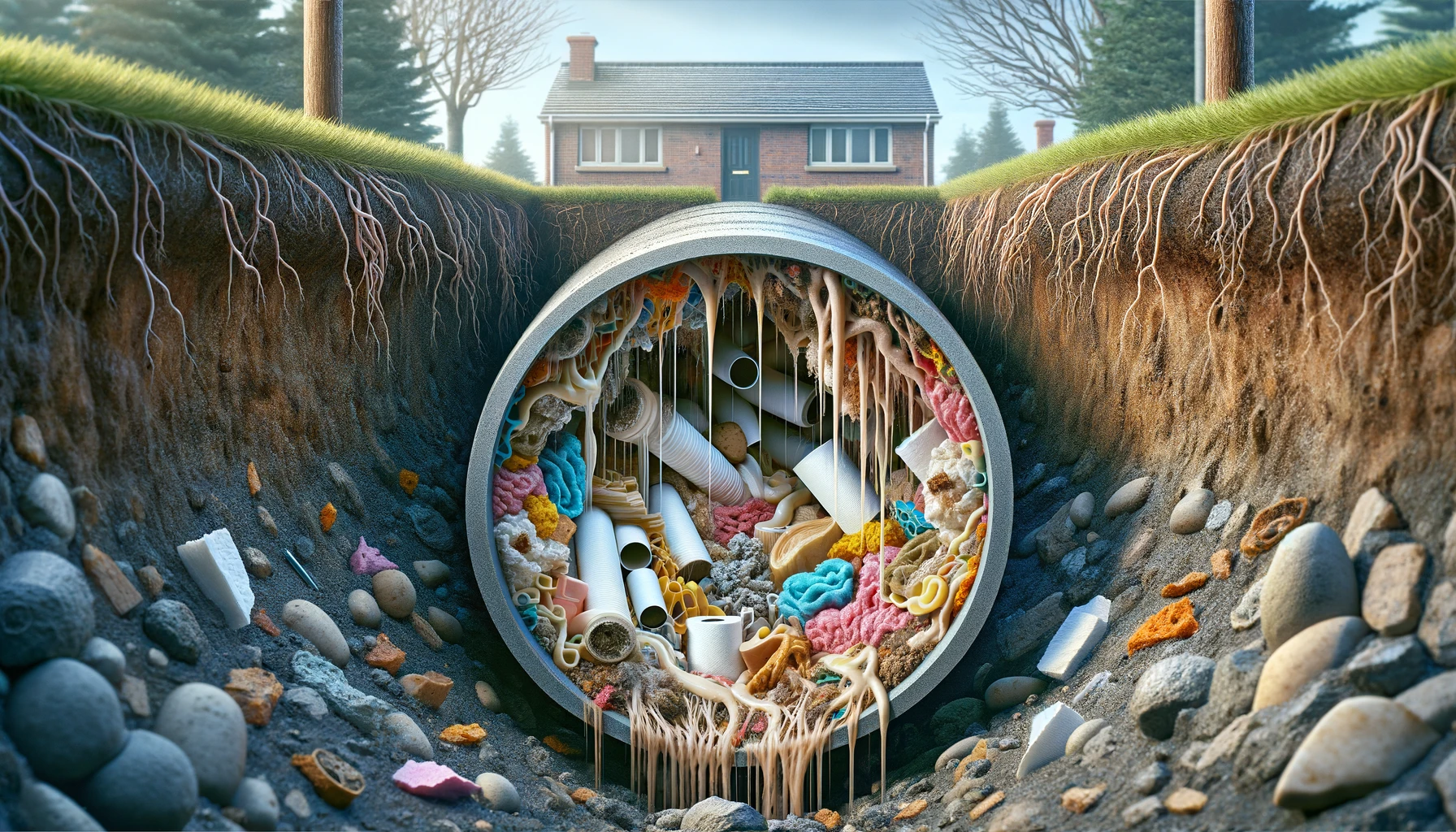When faced with a clogged main sewer line, many homeowners feel overwhelmed. This comprehensive guide is crafted to ease that burden, offering thorough, accessible solutions for tackling this issue without a plumbing snake. We’ll dissect the causes of sewer line blockages, their early signs, and diverse, do-it-yourself methods to resolve these challenges. Our goal is to empower you with the knowledge and techniques necessary to confidently and efficiently address this common household problem.
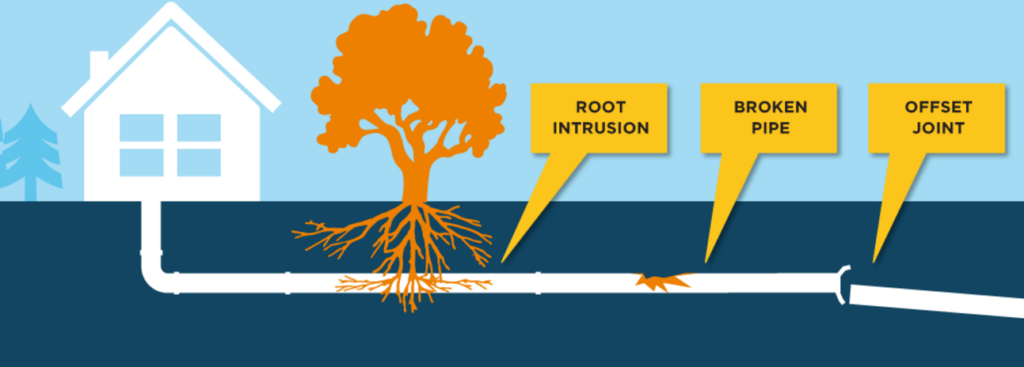
Understanding the Causes of Sewer Line Blockages
Blockages in your home’s main sewer line can arise from various sources, each requiring a unique approach for resolution. Let’s delve into the most common culprits:
- Debris Accumulation: Daily activities contribute to the gradual buildup of materials in your pipes. Hair from showers, soap scum from washing, grease from kitchen sinks, and food remnants from garbage disposals all contribute to this accumulation. Over time, these materials can compact and form significant blockages.
- Tree Root Intrusion: Particularly in older neighborhoods, tree roots can be a major problem for sewer lines. Trees naturally seek moisture and can infiltrate even the smallest cracks in your sewer pipes. As these roots grow, they can obstruct or even damage the pipe, leading to serious blockages.
- Structural Pipe Damage: Various factors, including ground movement, construction work, and the natural aging process, can cause pipes to misalign, crack, or collapse. These structural issues can impede the flow of waste, leading to backups and blockages.
By understanding these common causes, you’re better equipped to tackle and prevent future clogs.
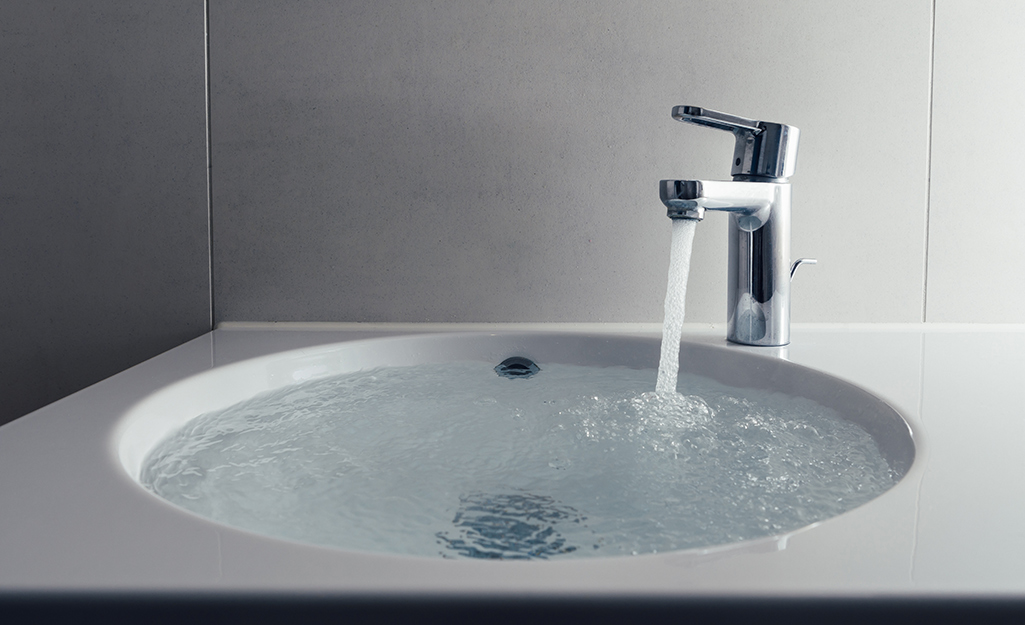
Early Signs of a Clogged Main Sewer Line
Recognizing the early signs of a sewer line blockage can prevent a minor issue from escalating into a major problem. Here are some key indicators:
- Slow Draining Sinks and Bathtubs: If you notice that water is draining more slowly than usual in your sinks, showers, or bathtubs, it could be an early sign of a blockage in your main sewer line. This slow drainage is often the first symptom homeowners notice.
- Gurgling Noises from Toilets and Drains: Unusual noises from your plumbing system, particularly gurgling or bubbling sounds from toilets and drains, can indicate trapped air caused by a blockage in your sewer line. Paying attention to these sounds can provide early warning of potential problems.
- Unpleasant Odors: Persistent sewage smells emanating from your drains or toilets are a clear indication that something is not right with your sewer line. These odors suggest that waste is not being properly transported from your house due to a blockage.
Being aware of these signs and acting promptly can save you from more complicated and expensive repairs down the line.
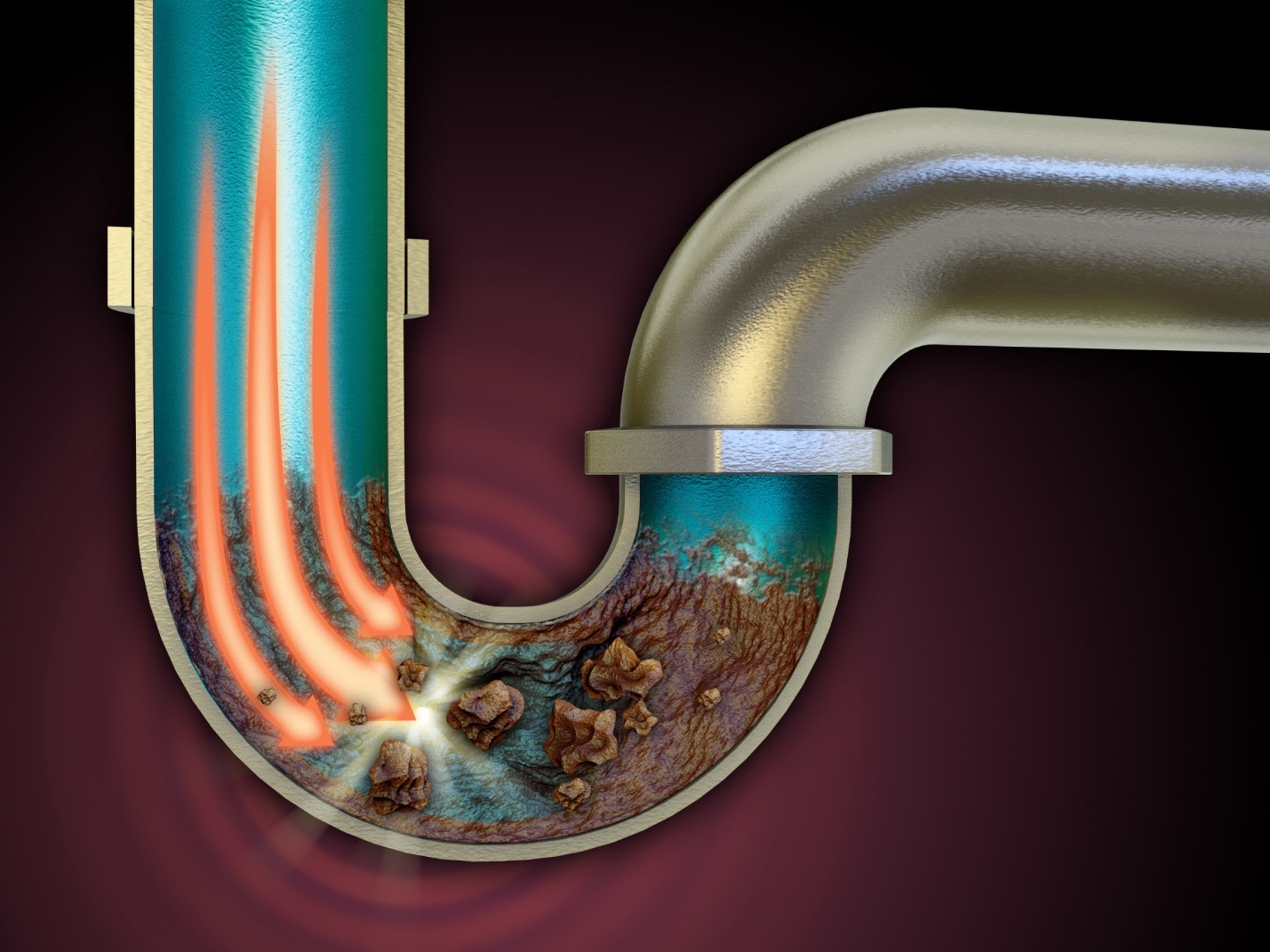
Detailed Methods to Unclog Your Sewer Line Without a Snake
Unblocking a main sewer line without a plumbing snake involves several practical methods that homeowners can undertake. Here, we detail some of the most effective techniques:
- Effective Plunger Use:
- Select the Right Plunger: For sewer line clogs, a flange plunger, which has an extended rubber lip, is more effective than a standard cup plunger.
- Create a Tight Seal: Fit the plunger’s flange into the toilet drain to form a tight seal. If you’re working on a different drain, ensure the plunger covers it completely.
- Plunge with Force and Technique: Use a forceful, up-and-down motion to create pressure in the drain. The goal is to dislodge the clog with the pressure created by the plunger. Do this for about 20 seconds to a minute.
- Repeat if Necessary: Sometimes, it may take a few attempts to clear the blockage.
- Garden Hose Method:
- Preparation: Attach a specialized drain nozzle to your garden hose. These nozzles can increase water pressure and are designed to navigate pipes.
- Insertion into the Drain: Carefully feed the hose into the main sewer cleanout line.
- Apply Water Pressure: Turn on the water and allow the pressure to dislodge the blockage. The force of the water can break up clogs and push them through the sewer system.
- Baking Soda and Vinegar Solution:
- Mix the Solution: Combine one part baking soda with one part vinegar. The mixture will fizz, creating a chemical reaction.
- Pour Down the Drain: Immediately pour this mixture down the clogged drain.
- Wait and Flush: Let it sit for several hours or overnight to break down the clog, then flush the drain with hot water.
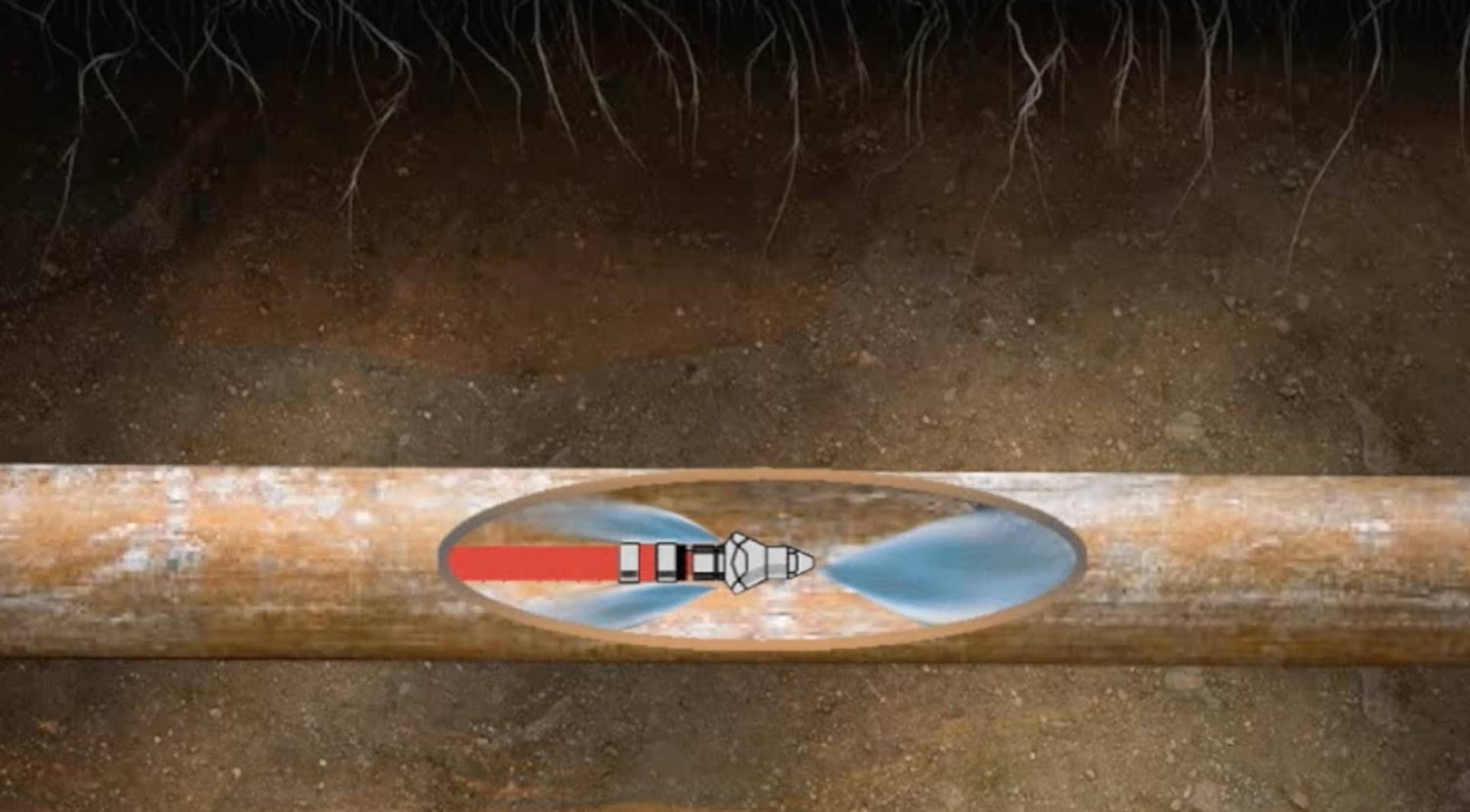
The Power of High-Pressure Water Jets
For stubborn clogs, high-pressure water jetting can be a highly effective solution. Here’s how to approach it:
- Understanding the Equipment: A water jetter consists of a high-pressure hose with a specialized nozzle and a machine that pressurizes water. The nozzle typically has front and rear jets, allowing it to move through the pipe and clear the way.
- Safety Guidelines:
- Protective Gear: Always wear protective eyewear and gloves.
- Inspect Equipment: Check the water jetter for any signs of wear or damage before use.
- Awareness of Surroundings: Ensure you have a clear area to work in, free of obstructions and hazards.
- Using the Water Jetter:
- Set Up: Connect the water jetter to a water source and insert the nozzle into the cleanout opening of your sewer line.
- Operation: Turn on the machine and slowly feed the hose into the sewer line. The high-pressure water will cut through the blockage, cleaning and clearing the pipe as it goes.
- Methodical Approach: Move the hose back and forth to thoroughly clean the pipe and ensure the blockage is completely cleared.
Eco-Friendly Enzymatic Drain Cleaners
Enzymatic drain cleaners are a safer, more environmentally friendly alternative to harsh chemical cleaners. These cleaners use natural enzymes to break down organic matter clogging your pipes. Here’s how to use them effectively:
- Application: Pour the recommended amount of enzymatic cleaner into the clogged drain.
- Action Time: Allow the cleaner to sit for the specified time on the product label, usually overnight.
- Flush: Flush the drain with warm water to clear out the disintegrated clog and the cleaner.
Enzymatic cleaners are not only effective but also help maintain a healthy plumbing system and environment.
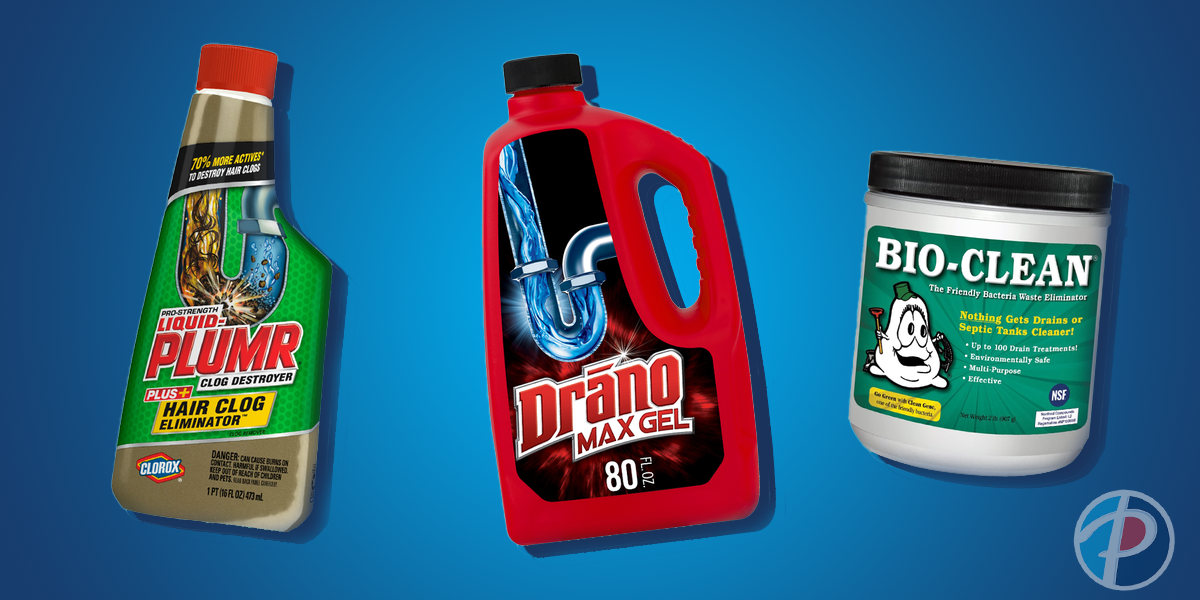
Preventive Maintenance: Keeping Your Sewer Line Flowing
A little prevention goes a long way in avoiding sewer line clogs. Regular maintenance can save you from the hassle and expense of major plumbing issues. Here are some key preventive strategies:
- Be Mindful of What Goes Down Your Drains:
- Avoid flushing anything other than toilet paper and human waste.
- In the kitchen, keep grease, coffee grounds, and food scraps out of the sink. Use a drain strainer to catch any debris.
- Regular DIY Cleaning:
- Once a month, flush your drains with a mix of hot water, baking soda, and vinegar to keep them clear.
- Regularly clean drain stoppers and strainers to prevent hair and debris build-up.
- Professional Inspections:
- Schedule an annual inspection of your sewer line with a professional. They can use cameras to check for potential problems like tree root intrusion or pipe damage.
- Manage Tree Root Growth:
- Be cautious about planting new trees near your sewer line. If you have existing trees, consider root barrier systems to prevent roots from reaching the pipes.
- Regularly trimming tree roots (with professional help) can prevent them from encroaching on your sewer lines.
By following these tips, you can significantly reduce the likelihood of sewer line clogs and ensure a smoothly functioning plumbing system.
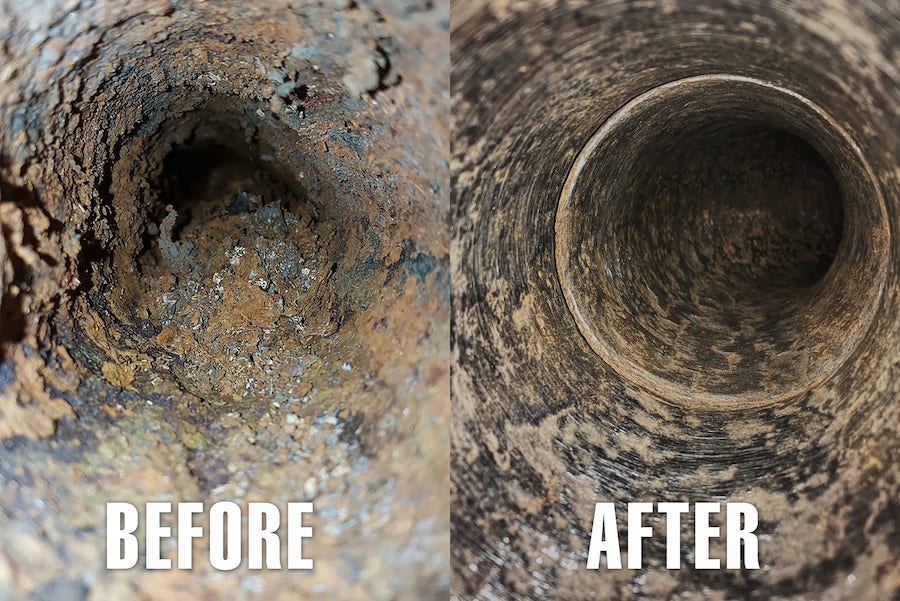
FAQ/Frequently Asked Questions
- What Are the Risks of Using Chemical Drain Cleaners? Chemical drain cleaners can be effective in clearing clogs, but they come with risks. They can corrode pipes, harm the environment, and pose health hazards if not used properly. It’s often safer to use mechanical methods or enzymatic cleaners.
- Can I Prevent Tree Roots from Intruding My Sewer Line? Yes, tree root intrusion can be prevented by planting trees away from your sewer lines and installing root barriers. Regular inspections and maintenance can also help identify and address root intrusions early.
- When Should I Call a Professional? If you’ve tried DIY methods without success, or if the problem recurs frequently, it’s time to call a professional. Also, if you notice signs of significant blockage, like multiple clogged fixtures or sewage backups, professional help is essential.
- How Often Should I Inspect My Sewer Line? A good rule of thumb is to have a professional inspection annually. However, if your home is older or you have large trees near your sewer lines, more frequent inspections might be necessary.
- Are There Any Signs That Indicate an Emergency Situation? Yes, signs like sewage backing up into your home, water pooling in your yard, or a noticeable sewage smell around your property indicate an emergency. In such cases, immediate professional intervention is required.
Call the Professionals
Navigating the challenges of a clogged main sewer line doesn’t have to be an overwhelming ordeal. With the detailed methods and preventive strategies outlined in this guide, you’re now equipped with the knowledge to tackle this issue head-on. Whether you choose a DIY approach with plungers and natural cleaners or opt for more advanced techniques like high-pressure water jets, remember that the key to success lies in understanding the problem and applying the right solution with care and precision.
However, it’s important to recognize when a situation is beyond your expertise. Persistent or recurrent blockages, signs of significant pipe damage, or any emergency scenarios should be handled by professionals. In these instances, it’s crucial to seek the assistance of experienced plumbers who can provide the necessary expertise and equipment to resolve the issue safely and effectively.
As homeowners, regular maintenance and awareness are your best defenses against plumbing problems. By staying vigilant for early signs of trouble and adhering to routine maintenance practices, you can significantly reduce the likelihood of severe sewer line issues.
If you find yourself in need of professional help, or if you prefer the assurance that comes with expert services, Paschal Air, Plumbing & Electric is here to assist you. Our team of skilled professionals is equipped to handle all your plumbing needs, from routine inspections to emergency repairs. We pride ourselves on providing reliable, high-quality service that ensures the safety and efficiency of your home’s plumbing system.
Don’t let sewer line troubles disrupt your peace of mind. For expert guidance, reliable solutions, and top-notch service, schedule your next appointment with us at Paschal Air, Plumbing & Electric. Let us take care of your plumbing needs so you can focus on enjoying your home.



